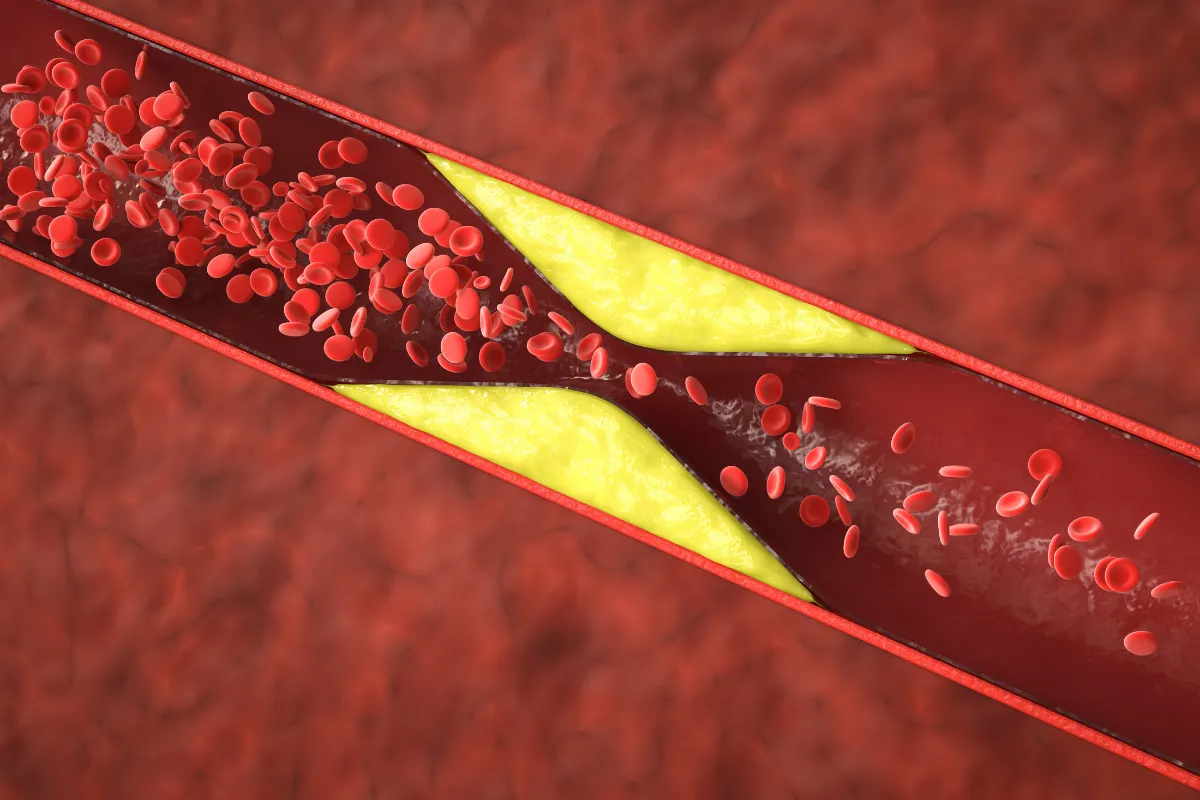High Cholesterol Treatment: Understanding the Risks and Benefits in Spring Are you concerned about your cholesterol levels? It’s a common worry, especially as we get older, and understanding the available treatments is key. High cholesterol can lead to serious health issues, but the good news is there are ways to manage it effectively. Let’s explore the risks and benefits of various treatments to help you make informed decisions about your health right here in Spring, Texas. What is High Cholesterol and Why Should You Care? Cholesterol is a waxy substance found in your blood. Your body needs it to build healthy cells, but high levels can increase your risk of heart disease. Think of it like plumbing: too much cholesterol can clog your arteries, leading to problems. Increased risk of heart attack Increased risk of stroke Peripheral artery disease Chest pain (angina) Understanding Your Cholesterol Numbers It’s not just about “high” or “low.” Let’s look at the key numbers your doctor will check during a blood test, as part of a generic medical screening. Types of Cholesterol LDL (Low-Density Lipoprotein): “Bad” cholesterol that contributes to plaque buildup. HDL (High-Density Lipoprotein): “Good” cholesterol that helps remove LDL from your arteries. Triglycerides: Another type of fat in your blood that can also contribute to heart disease. Treatment Options for High Cholesterol There are several ways to manage high cholesterol, ranging from lifestyle changes to medications. We at Dr. A Patient Care, located at 5523 Louetta Rd STE C, Spring, TX 77379, offer a comprehensive approach to help you find the best solution. Lifestyle Changes Diet: Focus on fruits, vegetables, lean protein, and whole grains. Exercise: Aim for at least 30 minutes of moderate-intensity exercise most days of the week. Weight Management: Losing even a small amount of weight can help lower your cholesterol. Check out our weight loss management program for help. Quit Smoking: Smoking lowers HDL (“good”) cholesterol. Medications If lifestyle changes aren’t enough, your doctor may prescribe medication. Statins: These are the most common type of cholesterol-lowering medication. Bile Acid Sequestrants: These medications help lower LDL cholesterol. Cholesterol Absorption Inhibitors: These medications prevent your body from absorbing cholesterol from food. PCSK9 Inhibitors: Newer medications that can significantly lower LDL cholesterol. Fibrates: Primarily used to lower triglycerides. Risks and Benefits of Cholesterol-Lowering Medications Like all medications, cholesterol-lowering drugs have potential risks and benefits. It’s important to discuss these with your doctor to make an informed decision. Medication Benefits Potential Risks Statins Lowers LDL cholesterol, reduces risk of heart attack and stroke Muscle pain, liver damage (rare), increased blood sugar Bile Acid Sequestrants Lowers LDL cholesterol Constipation, bloating, nausea Cholesterol Absorption Inhibitors Lowers LDL cholesterol Muscle pain (rare), liver problems (rare) PCSK9 Inhibitors Significantly lowers LDL cholesterol Injection site reactions, allergic reactions Fibrates Lowers triglycerides, raises HDL cholesterol Muscle pain, liver problems, gallstones Considering your options? We can help! Call us at 346-550-8220 or book a consultation to get started. Working with Dr. A Patient Care in Spring, TX We are committed to providing personalized care for our patients in the Spring area. We take the time to understand your individual needs and develop a treatment plan that’s right for you. We offer annual physicals, preventive screenings, and chronic disease management services to help you stay healthy. Our team includes experts like Dr. Alsaedi and other experienced professionals. FAQs About High Cholesterol Treatment Will I need to take medication forever? Not necessarily. Some people can manage their cholesterol with lifestyle changes alone. However, if your cholesterol is very high or you have other risk factors, you may need to take medication long-term. What are the side effects of statins? The most common side effect of statins is muscle pain. Other possible side effects include liver damage (rare) and increased blood sugar. Talk to your doctor if you experience any side effects. How often should I have my cholesterol checked? The frequency of cholesterol checks depends on your age and risk factors. Most adults should have their cholesterol checked at least every five years. If you have high cholesterol or other risk factors, you may need to be checked more often. We offer convenient lab testing at our Spring, TX office. Can diet alone lower my cholesterol? Yes, diet can play a significant role in lowering cholesterol. Focus on eating a heart-healthy diet rich in fruits, vegetables, lean protein, and whole grains. Limit saturated and trans fats, cholesterol, and sodium. What is the link between high cholesterol and heart disease? High cholesterol can lead to plaque buildup in your arteries, a process called atherosclerosis. This plaque can narrow your arteries, making it harder for blood to flow to your heart. This can increase your risk of chest pain (angina), heart attack, and stroke. See more about the link between high cholesterol and heart disease on our blog. Effective high cholesterol treatment involves a combination of lifestyle adjustments and, in some cases, medication. Understanding the risks and benefits of each option is crucial. With the right approach and support from Dr. A Patient Care, residents of Spring, TX can successfully manage their cholesterol levels and protect their heart health.
High Cholesterol Treatment: Understanding the Risks and Benefits in Spring

Categories
[all_categories_list]
Easy Online Appointment Booking
One Step Appointment
Booking
At Dr. A Patient Care, we make healthcare simple, accessible, and centered around you.
EXCELLENTTrustindex verifies that the original source of the review is Google. I highly recommend Dr. Muhaned to everyone! He is incredibly knowledgeable and an expert in his field. His personable demeanor and thorough explanations make every visit a positive experience. The office is always clean and runs smoothly which is a big plus. I’d also like to mention one of the medical assistant Afra she was exceptionally kind, professional, and had such a warm demeanor that made me feel at ease right away. Overall the entire team is friendly and dedicated to providing the best care Truly a five-star experiencePosted onTrustindex verifies that the original source of the review is Google. The staff was great, very helpful and welcoming and so was the Doctor. He was such a sweet man.We felt very comfortable with the visit. THANK YOU!Posted onTrustindex verifies that the original source of the review is Google. Update: This has been an absolutely terrible and deeply unethical experience. The office knowingly misled us by claiming they were in-network, despite us confirming multiple times and raising clear concerns. We even pointed out that the deductible amount was clearly stated on the insurance card, yet they continued to insist otherwise and billed us outrageously for routine visits. This wasn’t a simple error — it was intentional and deceptive. Even more disturbing, they require an in-person visit every single time we need a refill — even for chronic, non-controlled medications like those for diabetes and high blood pressure. These are not pain meds. There’s no medical justification for requiring repeated visits just for basic refills — it’s clearly a tactic to generate profit off patients, not to provide care. We’ve filed formal complaints with both the insurance company and the medical board because this kind of behavior is not only unprofessional, it’s unethical and borders on fraud. The staff lacks any understanding of insurance policies, and the office manager is completely unhelpful and uninformed. It’s incredibly disheartening to see a doctor we once trusted — who used to provide excellent care in a previous setting — now run a private practice that puts money above patient care. We will never return, and we urge others to stay far away from this practice.Posted onTrustindex verifies that the original source of the review is Google. This has been an absolutely terrible and deeply unethical experience. The office knowingly misled us by claiming they were in-network, despite us confirming multiple times and raising clear concerns. We even pointed out that the deductible amount was clearly stated on the insurance card, yet they continued to insist otherwise and billed us outrageously for routine visits. This wasn’t a simple error — it was intentional and deceptive. Even more disturbing, they require an in-person visit every single time we need a refill — even for chronic, non-controlled medications like those for diabetes and high blood pressure. These are not pain meds. There’s no medical justification for requiring repeated visits just for basic refills — it’s clearly a tactic to generate profit off patients, not to provide care. We’ve filed formal complaints with both the insurance company and the medical board because this kind of behavior is not only unprofessional, it’s unethical and borders on fraud. The staff lacks any understanding of insurance policies, and the office manager is completely unhelpful and uninformed. It’s incredibly disheartening to see a doctor we once trusted — who used to provide excellent care in a previous setting — now run a private practice that puts money above patient care. We will never return, and we urge others to stay far away from this practice.Posted onTrustindex verifies that the original source of the review is Google. Excelente atención!Posted onTrustindex verifies that the original source of the review is Google. Muy buena atención el doctor muy amable todo perfecto sebe muy bien mi recuperaciónPosted onTrustindex verifies that the original source of the review is Google. Pense que era una clínica super especializada todos muy amables. La primera vez que visite 19 de octubre. Para el control de peso y todo hiba bien asta que el 25 de enero los visite y resulta que pague igual por medicamento pero para mi sorpresa solo recibí la mitad. Llamé y llamé tanto al clínica como la farmacia pero al final resultó la clínica una mentirosa .porque me fui con el farmacéutico y el dijo la verdad el doctor solo pago por la mitad no por los 3 meses .al principio el se mostró un poco antipático pero en unos minutos asta me alcanzo asta el carro para explicarme y decirme que no me preocupara qué el va a darme el resto de mi tratamiento pero aria una nota en su expediente al final le agradezco al farmacéutico el entendió lo que estaba pasando .la verdad me siento estafada..Posted onTrustindex verifies that the original source of the review is Google. Dr. Mohaned is truly an outstanding doctor. From start to finish, my experience was smooth, professional, and comforting. He took the time to listen to my concerns, explained everything in a clear and reassuring way, and made sure I felt heard and cared for. His knowledge and gentle approach made a big difference, and I never felt rushed or overlooked. The entire team was also warm, organized, and efficient, creating a welcoming and supportive environment. It’s rare to find such a perfect balance of expertise and genuine compassion. I highly recommend Dr. Mohaned and his team for anyone seeking excellent, patient-focused cateVerified by TrustindexTrustindex verified badge is the Universal Symbol of Trust. Only the greatest companies can get the verified badge who has a review score above 4.5, based on customer reviews over the past 12 months. Read more
Insights

